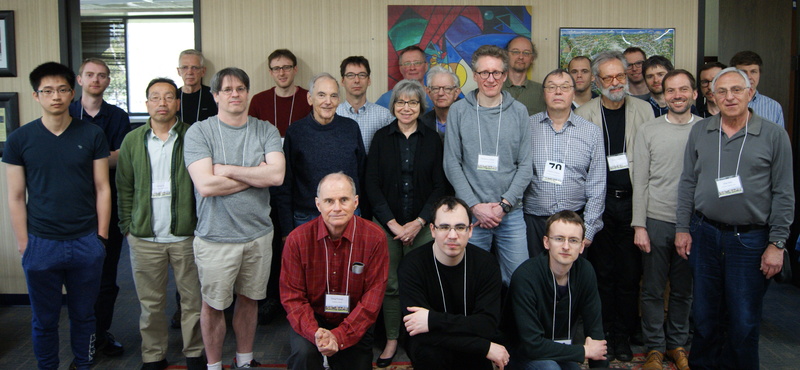Fisher-Hartwig asymptotics, Szego expansions, and applications to statistical physics
March 27 to March 31, 2017
at the
American Institute of Mathematics,
San Jose, California
organized by
Hajo Leschke,
Alexander V. Sobolev,
and Wolfgang Spitzer
Original Announcement
This workshop will focus on the theory of Toeplitz matrices (TM) and
Wiener-Hopf operators (WHO).
In the recent ten or so years, the theory of these operators
(TM and WHO) attracted a great deal of renewed attention from
mathematical and theoretical physics communities due to the mathematical
beauty of problems involved, and due to new applications in physics. For
example, novel developments in quantum information theory and statistical
physics concern the asymptotics of the (quantum) entanglement entropy of thermal
equilibrium states, the overlap of ground states in the Anderson orthogonality
catastrophe and the emptiness formation probability in quantum spin models.
These quantities can be deduced from suitable Szego limit theorems, that is,
from asymptotic results for traces of certain functions of TM and WHO.
The workshop will focus on the following problems.
- Double scaling limits for TM and WHO with symbols which, apart from the
scaling parameter $L$, depend on another parameter, say on temperature $T$,
as $L \rightarrow \infty$ and $T \downarrow 0$ in a coordinated way.
- Asymptotics for block TM and WHO with Fisher-Hartwig singularities.
- The study of multi-term asymptotics for TM and WHO with the aim to detect
topological entropy, that is, a term depending, for instance, on the Euler
characteristics
of the spatial domain.
- Extension to TM and WHO which are translation invariant with respect to a
group different from (all) Euclidean translations. Examples include periodic
potentials, magnetic fields and random operators.
The purpose of this workshop is to bring together experts from mathematics and
theoretical/mathematical physics in order to address the topics outlined
above, and to identify new directions in the field Szego expansions,
stimulated by recent developments in both fields.
Material from the workshop
A list of participants.
The workshop schedule.
A report on the workshop activities.
A list of open problems.
Papers arising from the workshop:

